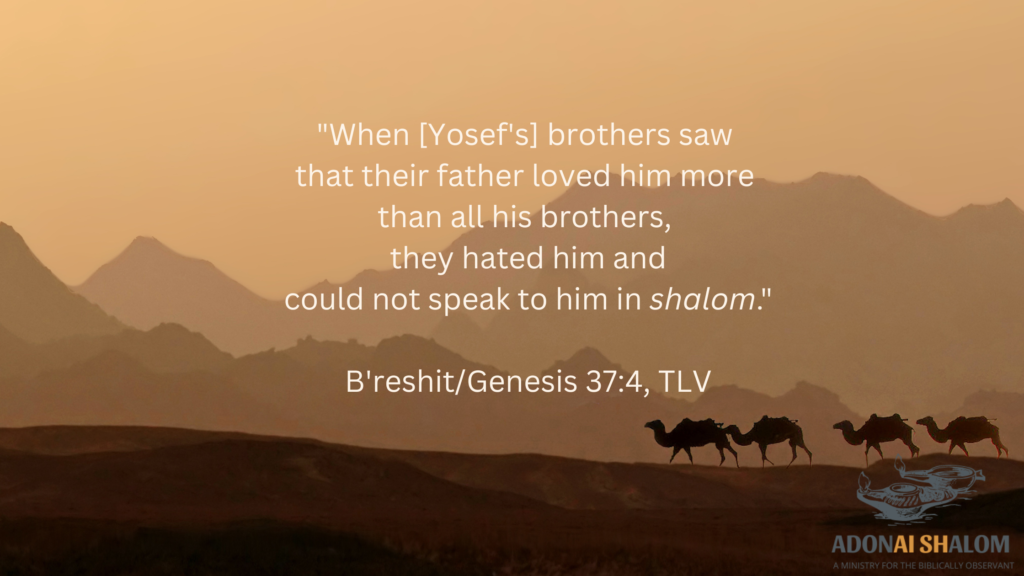Yosef’s (Joseph’s) spiritual gifts
Parashot Miketz (B‘reishit/Genesis 41-44:17), Vayigash (B’reishit/Genesis 44:18 – 47:27, (B’reishit/Vayechi Genesis 47:28 – 50) 5783 B”H
Yosef (Joseph) was blessed with spiritual gifts that helped him overcome adversity and rise to an important position in the Egyptian government.
The Spiritual Gifts/Gifts of the Holy Spirit (Ruach haKodesh)
When we think about the gifts of the Holy Spirit (Ruach haKodesh), we very rightly turn to the B’rit Hadasha (New Testament), namely 1 Corinthians 12:8ff:
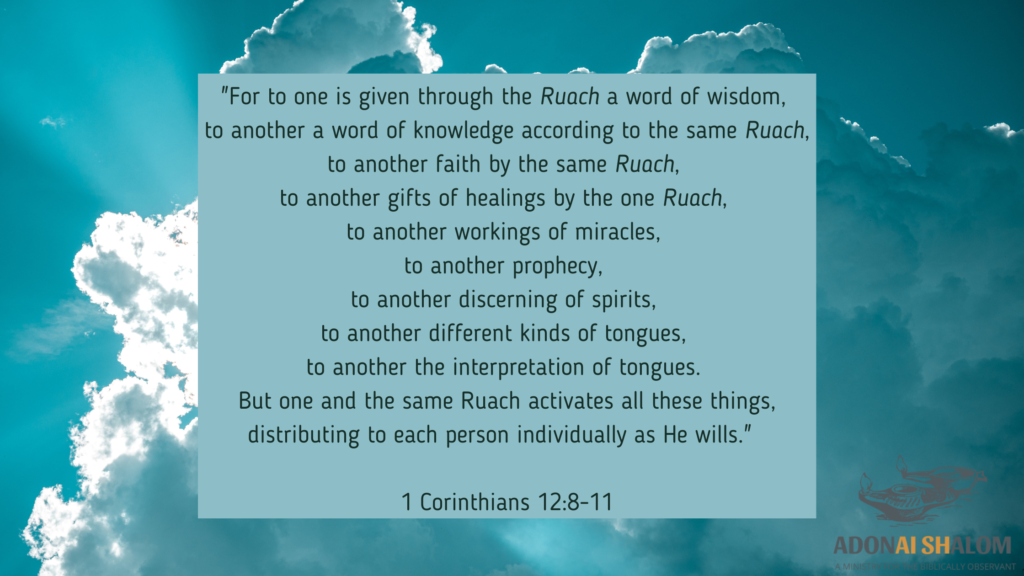
We know that these spiritual gifts continue to operate today and that the Holy Spirit (Ruach haKodesh) provides these supernatural spiritual gifts to empower believers to reach the world with the life-saving and life-changing Good News of our Messiah Yeshua (Jesus Christ). These gifts have absolutely not ceased! They continue to bless the people of God around the world.
The 9 Gifts of the Holy Spirit (Ruach haKodesh) include:
- Word of Wisdom
- Word of Knowledge
- Faith
- Healings
- Working of Miracles
- Prophecy
- Discerning of spirits
- Speaking in tongues
- Interpretation of tongues
Yosef clearly walked in wisdom and faith. The Bible testifies that he was not only favored, but also productive:
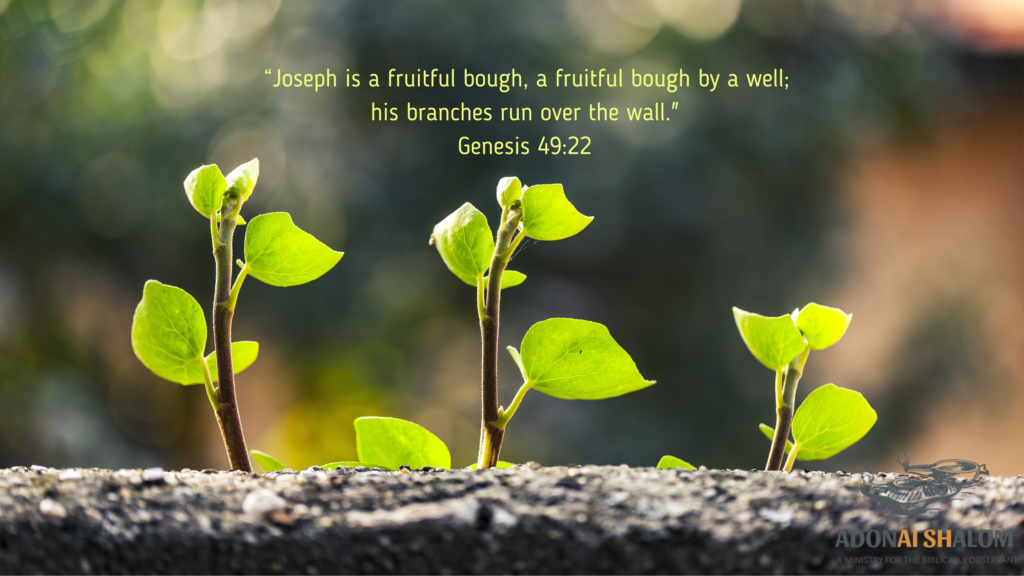
Hebrew is a visual language, painting pictures with words. The same term is used to describe both “daughters” and “branches” which is why there are differences in the translations above. In any case, Yosef (Joseph) was revered as an exemplar son.
Romans 12:6-8 also describes spiritual gifts given to believers:
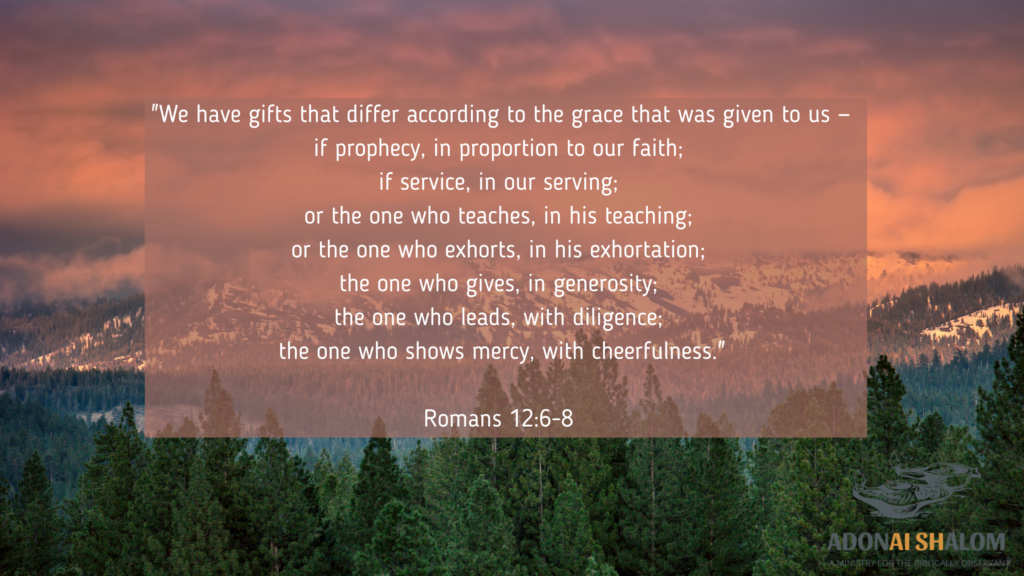
The Gifts of the Spirit . . . in the book of Genesis?
The “infilling of the Holy Spirit” (Ruach haKodesh), also known as the “baptism of the Holy Spirit,” occurred following Yeshua’s (Jesus’) ascension into heaven. What made the Pentecostal event so unique is that it had lasting effect: every single believer present and in prayer received the promise of the Father. The Comforter would now dwell inside the believers and empower them with the spiritual gifts to reach the world with the Full Gospel.
In the book of B’reishit/Genesis, as well as the rest of Tanakh (the Old Testament), the Spirit of the LORD came upon individuals, for certain tasks, for certain times. One could be filled with the Holy Spirit, but it appears to have been more of a temporary anointing.
This is important because Yosef (Joseph) was therefore able to operate under the anointing of the LORD even though this was pre-Shavu’ot (pre-Pentecost). Yosef (Joseph) was filled with custom-tailored spiritual gifts that would manifest as he interacted with those around him.
Even Pharaoh noticed:
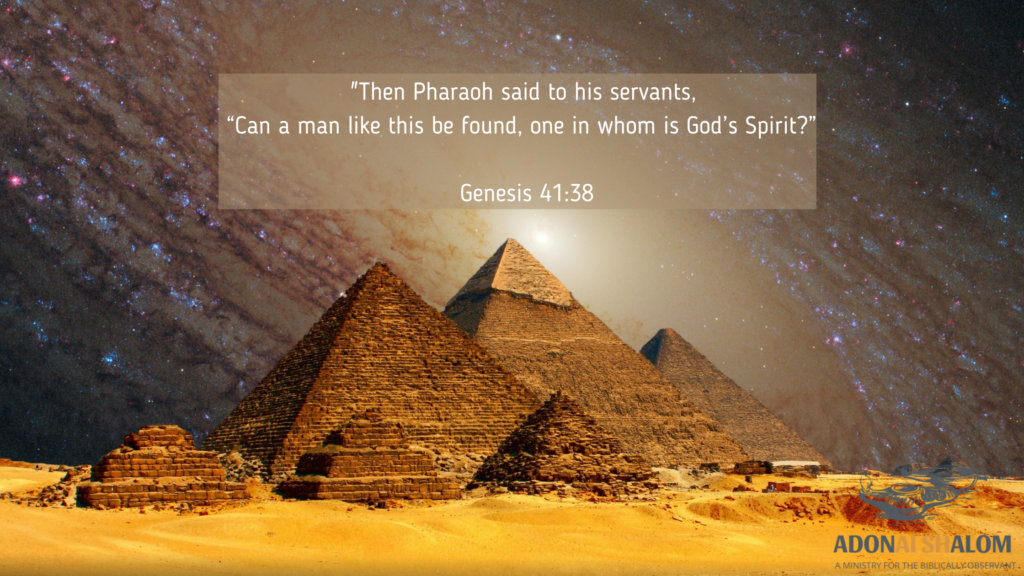
The pharaoh – the king over a wealthy nation steeped in its own complex mythology was able to recognize that the Spirit of God was in Yosef (Joseph).
Yosef’s Prophetic Dreams and Ability to Interpret Dreams
From a young age, Yosef (Joseph) had prophetic dreams.
Rightly does Yeshua (Jesus) teach us: “Truly, I tell you, ‘No prophet is accepted in his own hometown.’” Luke 4:24
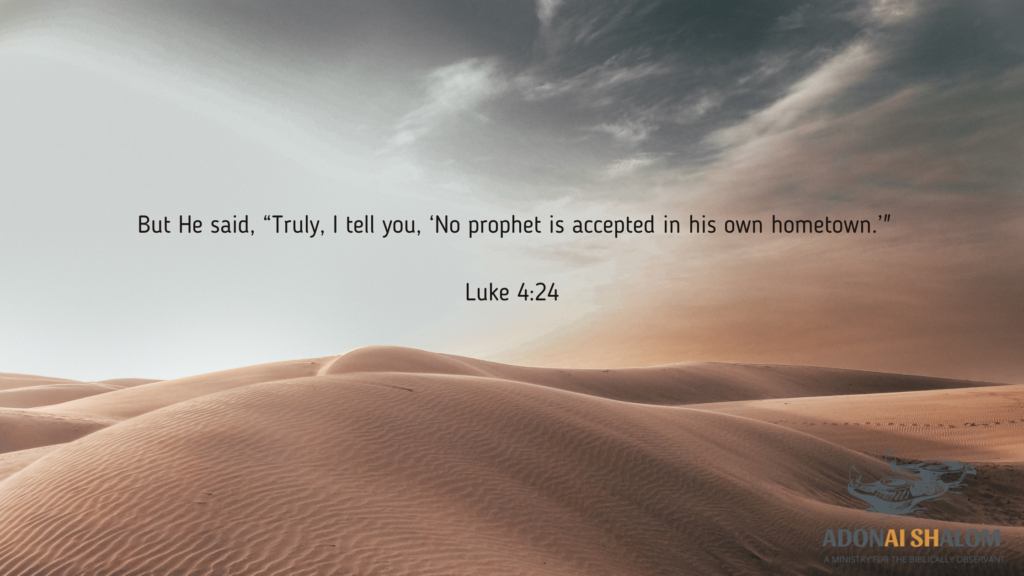
Those early dreams really didn’t need interpretation – their meaning was immediately evident to Yosef’s (Joseph’s) brothers, and they were infuriated.
While the means by which Yosef (Joseph) arrived in Egypt was far from pleasant, he was actually better off away from his native land. His prophetic giftings would be perceived differently in Egypt: his spiritual gifts were valuable to Pharaoh and the other Egyptian officials!
The Pharaoh’s cupbearer and the baker had dreams that they could not understand:
“Then Joseph said to them, “Don’t interpretations belong to God? Please tell me.” Genesis 40:8
Yosef (Joseph) wisely recognized that the ability to interpret dreams required submission to the God of Israel.
When Pharaoh, too, dreamed, Yosef (Joseph) was also able to interpret those dreams.
Shalom for . . . Pharaoh?
Demonstrating wise leadership skills, Yosef (Joseph) also very astutely helped the Pharaoh to have peace with the process:
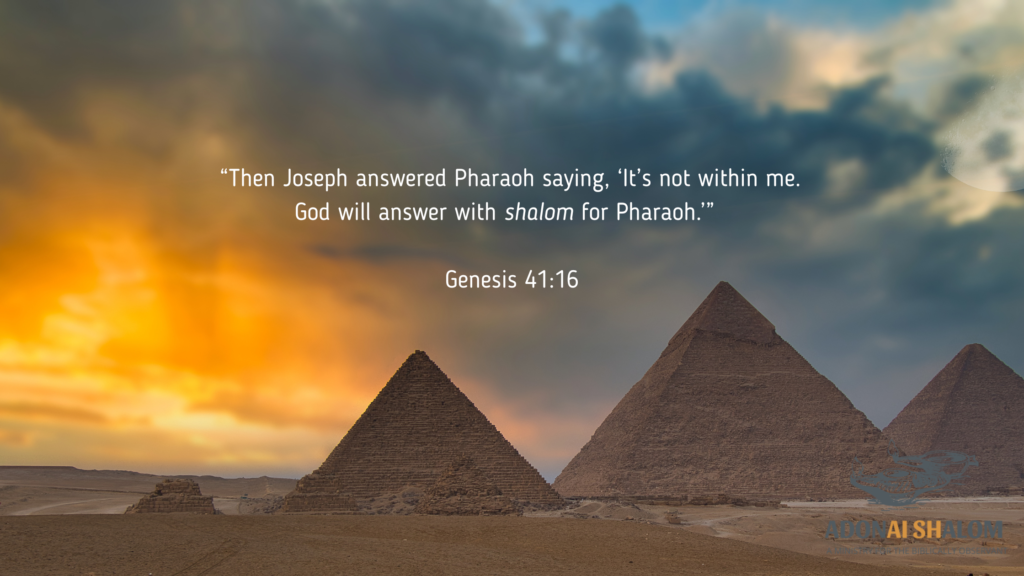
This granted him great favor in the land of Egypt and propelled his successful future forward. It didn’t matter where he was from or the struggles he had had to endure, he was an immigrant to Egypt and would serve as second-in-command to Pharaoh.
When the enemy has planned evil, remember, God plans it for good:
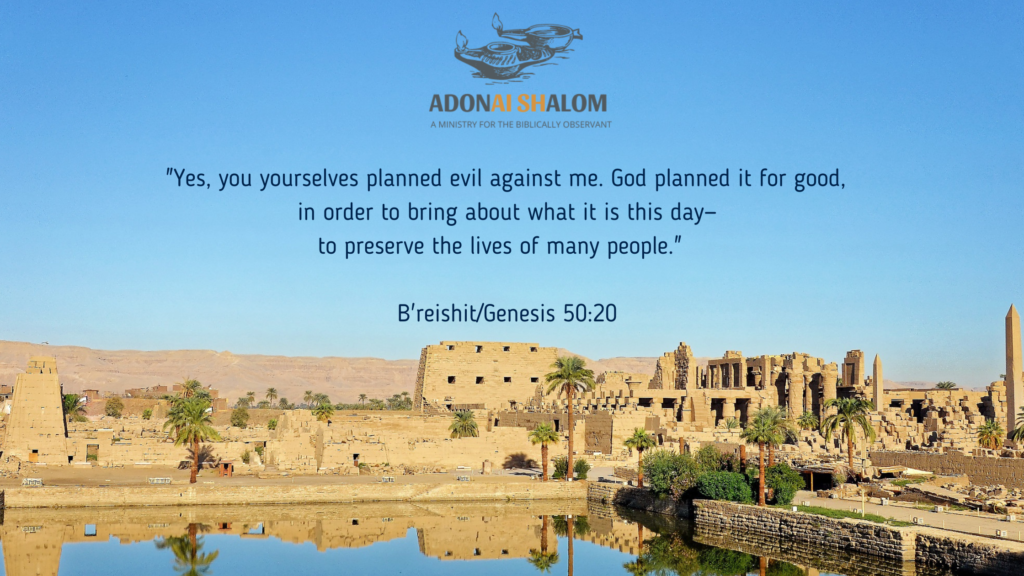
Pharaoh usually represents the enemy, but this pharaoh was actually good to Yosef and his people, so this Pharaoh was blessed with shalom.
Prophetic Giftings can make the enemy very nervous
A New Pharaoh
Yosef (Joseph) was like a token Hebrew. He represented the Hebrew/Israelite people (whether he wanted to or not!). They were a minority in Egypt, but their numbers were growing.
By Exodus 1:8-9, a new Pharaoh had ascended to the throne and was distressed about the number of God’s people who were living in Egypt.
Yosef (Joseph) had died by then, but his life had left a legacy and as spiritual gifts are meant to do – the Israelite people had been empowered in knowing that one of their own had served Pharaoh so closely.
The new Pharaoh didn’t know Yosef (Joseph) nor his spiritual gifts, but perhaps he had heard some stories. He didn’t have the shalom that was brought about by listening to God’s servant as in the days of Yosef (Joseph).
He clearly perceived the Israelites as a threat to the security of his nation.
Why a threat? Maybe he had heard that there lived among the Hebrews . . .
Some who had supernatural abilities . . .
Some who had the ability to interpret dreams without calling upon the gods of the Egyptians . . .
Some who served a God who foretold and controlled prosperity and famine . . .
Only the LORD God of Israel alone could provide true dream interpretation and true spiritual gifts.
That could be very unsettling to a ruler who had paid seers and magicians to plead with their gods and use works of imitation as part of the national culture.
If your spiritual gifting is making the enemy nervous, you are probably doing something right!
The Spirit of God (Ruach Elohim) is at work today
Do you realize that today, God has given us amazing spiritual power? It is so abundantly clear that we are living in the last days foretold by the Prophet Yo’el (Joel):
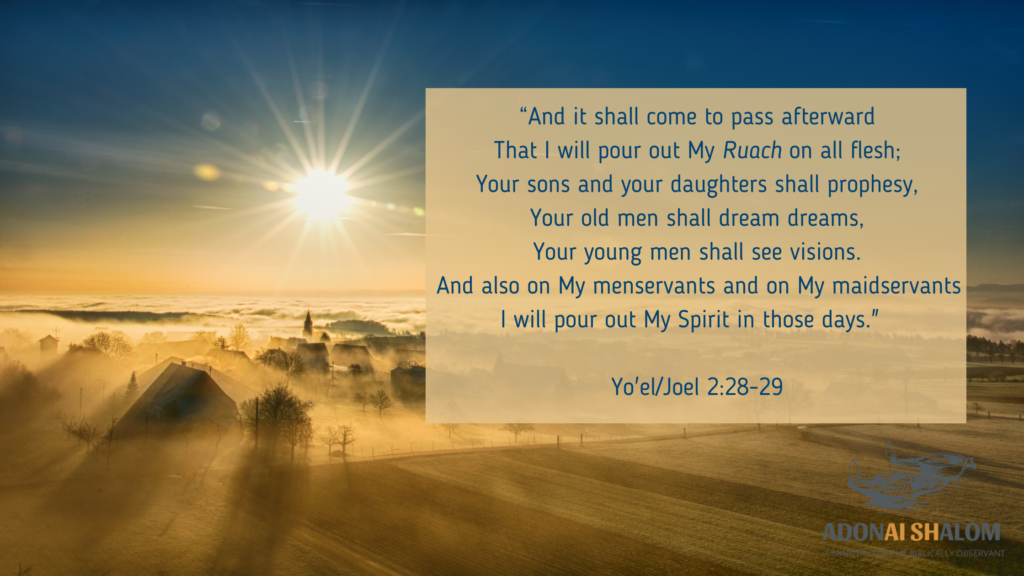
Those who serve the LORD will prophesy and dream dreams and see visions. The outpouring of the Spirit of the Most High has blessed entire nations.
Missionaries report that in Iran today, so many people are receiving dreams and visions of our Messiah Yeshua (Jesus) that they are converting en masse! New believers are being baptized in a country that is so hostile to the Gospel. The LORD continues to work! We must pray for the Iranian believers!
There are so many other examples of how the Holy Spirit (Ruach haKodesh) is working in the world today. And YOU have the opportunity to be a part of that!
Pharaoh noticed that the Spirit of God (Ruach Elohim) was in Yosef (Joseph):
Has anyone ever said that about you?
Is it that abundantly clear to a nonbeliever that in YOU dwells the very Spirit of the LORD by adoption and mercy?
Is it obvious that God’s Holy Spirit works in you and through you to bless others and testify of His power and greatness?
How are you using your spiritual gifts for His glory?
Today, seek the LORD’s will for your life. Ask Him to use your spiritual gifts for the purposes of His Kingdom. May you walk in favor, like Yosef!
